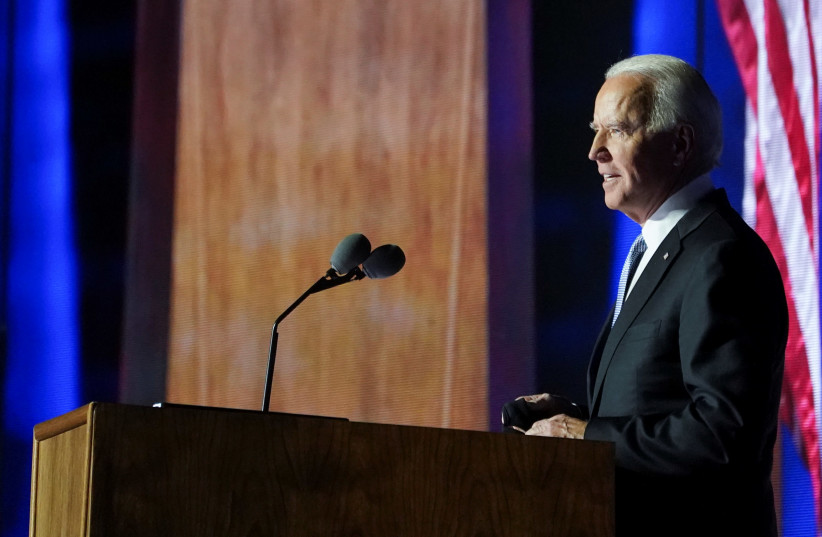Los Angeles Times | Seyed Hossein Mousavian: In the midst of major global crises, from North Korean missile tests to the continuing fight against Islamic State, President Trump is seemingly obsessed with one foreign policy goal: undoing the July 2015 Iran nuclear deal, which eased international sanctions on Tehran in exchange for curbs on Iran’s nuclear program.
While Trump has long expressed his disdain for the multilateral deal — between Iran and six world powers including the United States — the latest development is that his U.N. ambassador last week laid out a spurious case for U.S. withdrawal. Conveniently, the self-defeating plan involves punting responsibility for sabotaging the agreement to Congress.
If the United States scuttles the deal, the consequences will be drastic, not least for the cause of nuclear nonproliferation and America’s global credibility. As I learned in meetings with Iranian political figures during a trip to Iran last month, an about-face will also lead to a shift in that country’s foreign policy.
The Iranian foreign policy establishment has long been divided on the merits of normalizing relations with the West and containing U.S.-Iranian tensions. The more intransigent school of thought in Tehran holds that U.S. policies are no better than bullying and that any flexibility Iran shows will only invite more pressure.
Since President Hassan Rouhani’s election in 2013, the more conciliatory Iranian foreign policy establishment has been ascendant. This faction pinned much of its credibility on the peaceful resolution of the nuclear crisis and the West delivering on its side of the nuclear deal — namely sanctions relief — thereby validating their arguments on the benefits of such negotiations.
The nuclear deal thus became a seminal criterion in Tehran for judging whether the West, in particular the United States, could be trusted.
Iranian Supreme Leader Ayatollah Ali Khamenei declared in April 2015: “Now, this [nuclear negotiations] is a new experience. If the other side [the United States] sets aside its bad behavior, this will become a new experience for us, one that will tell us that, well, we can also negotiate with them about other issues. But, if they repeat the same behavior and take the wrong path, it [the negotiations] will only reinforce our past experience.”
Because Trump has put the deal in his crosshairs, advocates of diplomatic engagement with the West in Iran are being discredited. If he goes ahead with his stated wish to undo it, a domestic consensus will form not to trust, negotiate or cooperate with the United States on any future issue.
Policymakers in Tehran will also watch to see if Europe goes along with any Trump-led initiatives to pressure Iran.
If European leaders hold steadfast to the deal, as they have said they will, it will prove that Iran can pursue a relationship with the West minus the United States. Iran may well cooperate with Europe — and only Europe — on regional issues such as defeating Islamic State and stabilizing neighboring countries.
On the other hand, if Europe follows the U.S. despite full Iranian adherence to the terms of the nuclear deal, then Tehran would have legitimate grounds to prioritize Iranian security over all other considerations. Specifically, such a betrayal of Iran’s good faith will ignite calls in the country’s security establishment to bolster Iran’s means of deterrence — including its ballistic missile program and regional alliance network.
Iranian relations with Eastern countries such as Russia, China and India could also change. During the Obama administration, these states joined in on anti-Iran sanctions, shocking then-Iranian President Mahmoud Ahmadinejad, who had a “look to the East” policy. If they decide to buck Trump — and perhaps Europe as well — Iran’s geopolitical orientation will decisively shift toward the East. Iran will in the new multipolar age look to these rising powers for cooperation in the realms of trade, security and international politics.
As Trump weighs his next move, he should know that spiking the nuclear deal won’t return Iran, or the world, to the status quo ante. If he goes back on his predecessor’s promise, America’s hold on the region will deteriorate as Iran loses any remaining faith in the U.S. and builds partnerships elsewhere.
Seyed Hossein Mousavian is a scholar at Princeton University and a former head of the Foreign Relations Committee of Iran’s National Security Council. His latest book is “Iran and the United States: An Insider’s View on the Failed Past and the Road to Peace.”
Source Article from http://theiranproject.com/blog/2017/09/14/expect-trump-undoes-iran-nuclear-deal/
Related posts:
Views: 0
 RSS Feed
RSS Feed

















 September 14th, 2017
September 14th, 2017  Awake Goy
Awake Goy 





 Posted in
Posted in  Tags:
Tags: 
















